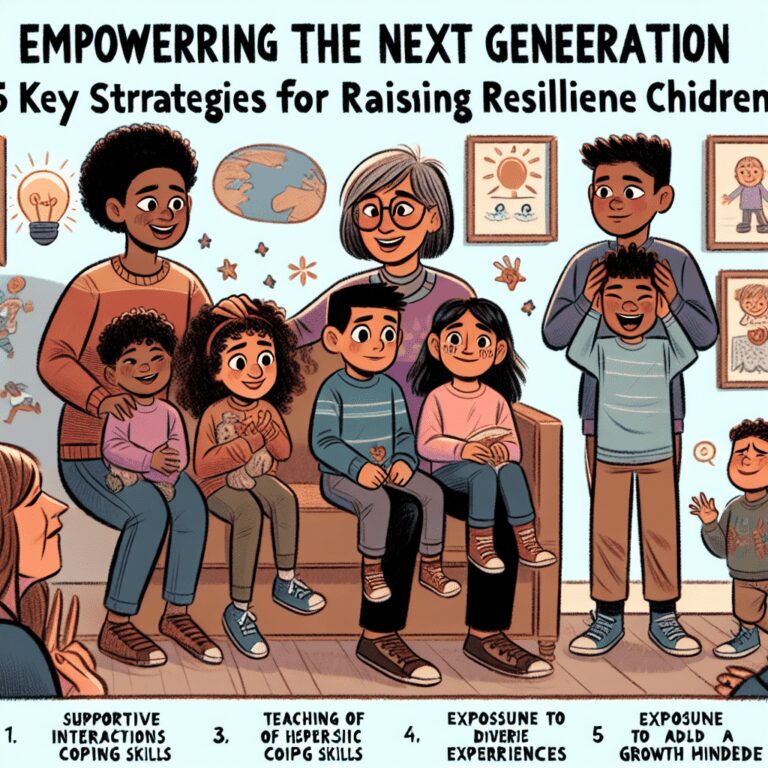
New Baby, New Challenges: Understanding the Mental Health Impact of Parenthood
Becoming a parent is often described as one of life’s most profound experiences. The moment you hold your baby in your arms, everything changes, and yet amidst the overwhelming joy, there lies a complexity that many don’t anticipate. Parenting is a journey filled with wonder, love, and joy, but it can also present significant challenges that impact mental health. In this blog post, we will explore the mental health implications of parenthood, understand the challenges faced, and provide strategies for navigating this transformative phase.
1. The Shift in Identity
The transition to parenthood marks a major shift in personal identity. No longer are you just an individual; you are now a caregiver, a protector, and a role model. This new identity can lead to confusion, especially for new parents who grapple with their previous self as they adjust to new responsibilities. The adjustment can be overwhelming and may lead to feelings of inadequacy.
As a life coach, I encourage parents to embrace this identity shift. Recognize that it is normal to feel lost at times. This period of redefinition is essential for personal growth. Set aside moments for self-reflection to understand the new roles you’re stepping into.
2. The Weight of Expectations
Society’s expectations can exacerbate the stress of new parenthood. Many parents feel pressured to conform to a certain ideal of parenting, often fueled by social media portrayals of "perfect" families. This pressure can lead to anxiety, feelings of not being good enough, and ultimately affect mental well-being.
Let’s remember that perfection is a myth. Focus on what’s truly vital: building a loving bond with your child. Reassess your expectations. Create a support network of other parents who share similar journeys. Allow vulnerability and honesty to guide your conversations.
3. Postpartum Mental Health Challenges
For birthing parents, the postpartum period can bring about serious mental health challenges, including postpartum depression (PPD) and anxiety. Hormonal fluctuations, combined with sleep deprivation, can lead to feelings of sadness, anger, or overwhelming anxiety that may affect bonding with the infant.
It’s important to be aware of these signs and seek help if you or someone you know is experiencing them. Open conversations about postpartum mental health are crucial. Talk to your healthcare provider about any feelings or symptoms you’re experiencing. Mental health is just as important as physical health.
4. Sleep Deprivation and Impact on Mental Health
One of the most common challenges of new parenthood is sleep deprivation. The sleepless nights can lead to irritability, lack of focus, and even mood disorders. The physical toll of inadequate sleep cannot be overstated; it has a direct impact on mental health.
To combat sleep deprivation, establish a nighttime routine for your baby that fosters better sleep patterns. Don’t hesitate to ask for help from family and friends. Consider taking turns with your partner for nighttime duties so both parents can get uninterrupted rest when needed.
The arrival of a new baby significantly alters the dynamics of a relationship. Partners may find themselves arguing more often or feeling emotionally distant due to the stresses of parenting. The shift in focus from each other to the baby can sometimes lead to feelings of neglect.
Maintaining open lines of communication is crucial as you navigate this transition together. Schedule regular check-ins where both partners can express their needs, concerns, and affirm each other. Prioritize time alone together, whether it’s a date night or a quiet evening at home without distractions.
6. Managing Parental Guilt
Parental guilt is a common phenomenon that can plague even the most dedicated of caregivers. Parents may feel guilty for not spending enough time with their children, for needing “me time,” or for wanting to pursue their personal aspirations. This guilt can lead to a cycle of stress and can take a toll on mental health.
To manage parental guilt, practice self-compassion. Your needs are just as valuable as your child’s. Remember that modeling self-care is an important lesson for your little ones. When you take care of yourself, you are in a better position to take care of them.
7. The Importance of Self-Care
With so much time dedicated to caring for a newborn, many parents neglect their own self-care. As a result, stress levels can build, affecting both physical and mental health. Practicing self-care is not indulgent; it’s a necessary aspect of sustainable parenting.
Establish a self-care routine that fits your lifestyle. This could mean exercising, engaging in hobbies, reading a book, or simply taking a quiet moment for yourself. Be intentional about carving out time for your own well-being. Remember, taking care of yourself enables you to be more present and effective for your family.
8. Seeking Help and Community
Don’t hesitate to seek help when needed. Whether you are struggling with feelings of inadequacy, anxiety, or experience postpartum challenges, reaching out to a therapist or counselor can provide invaluable support. Many parents find solace in connecting with parenting groups or communities where they can share challenges and triumphs.
Finding a supportive community can be a game-changer. Social connections foster feelings of belonging and help mitigate feelings of isolation that can arise during this significant life transition.
Conclusion
Parenthood is a beautiful yet challenging journey. The mental health impacts are many, but through awareness, communication, and the practice of self-care, parents can navigate this challenging time more effectively. Embrace the changes, sacrificial love, and those inevitable ups and downs. Remember that it is okay to ask for help and that you are not alone on this journey. By prioritizing your mental health, you are setting a foundation for both yourself and your child to thrive.
FAQs
1. How can I tell if I am experiencing postpartum depression?
Look for persistent feelings of sadness, anxiety, or irritability. If these feelings last longer than two weeks and impact your ability to care for your baby or yourself, seek help from a professional.
2. What can I do to enhance my relationship with my partner postpartum?
Prioritize communication and establish a routine to reconnect, such as weekly check-ins or date nights. It’s important to talk about feelings, expectations, and divide responsibilities to nurture your partnership.
3. What self-care activities are recommended for new parents?
Self-care can include physical activities, mindfulness practices, reading, or simply relaxing. It’s essential to find what recharges you and make it a priority.
4. Is it normal to feel overwhelmed after bringing home a newborn?
Yes, many parents feel overwhelmed with the changes and challenges that come with a newborn. It’s important to talk about these feelings and reach out for support.
5. How can I find support as a new parent?
Look for local parenting groups, online communities, or consider joining postpartum support programs. Connecting with other parents can provide encouragement and a sense of belonging.
6. Can I talk to my doctor about my mental health during pregnancy or postpartum?
Absolutely. Your mental health is essential during this time, and healthcare providers can offer resources, support, and treatment options tailored to your needs.
7. What should I do if I feel guilty about taking time for myself?
Understand that self-care is vital for your well-being. Allowing yourself time to recharge makes you a better parent in the long run.
8. How can I prepare for the adjustment of becoming a parent?
Educate yourself about pregnancy, childbirth, and parenting. Attend parenting classes and engage with your partner in discussions about expectations and responsibilities.
Instantly Access Your Free Children’s Books Here! (https://payhip.com/BlueCherryStore) – Disclaimer: As an Amazon Associate, I earn from qualifying purchases, I may earn a commission from qualifying purchases as an affiliate. Please note that I only recommend products I believe will provide value to my readers. (M)







